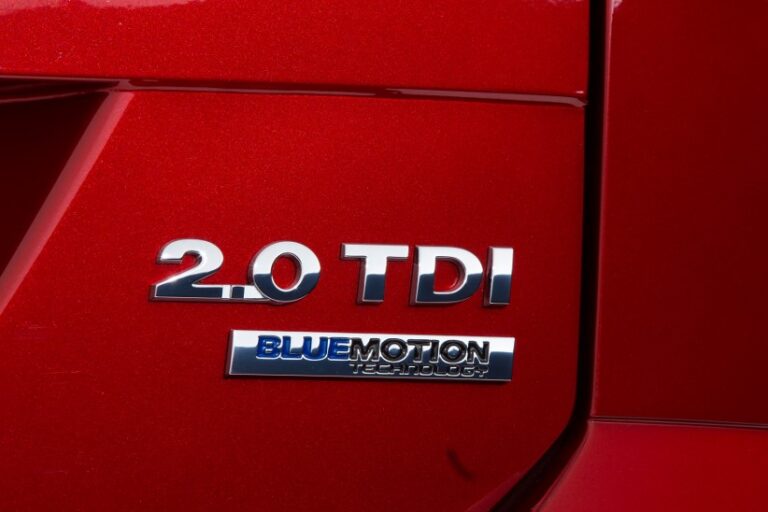– By Caroline Falls –
VWgate, the diesel emissions scandal engulfing the German automaker, unfolded some more this week with the local arm of Volkswagen AG announcing details of vehicles affected in Australia.
Meanwhile, fleet managers and local auto industry participants, are still unclear about the implications of vehicles being fitted with so-called defeat devices designed to pass regulatory tests.
“Everyone’s a little bit stunned at the moment and waiting to see what’s next,” said Andrew Kerr, director of sales and marketing at Melbourne-based novated leasing specialist Inside Edge. “What we’re seeing at the moment is people asking, “Hey what are we going to do?”
It’s only this week, almost three weeks after the first news of the emissions scandal came out in the US, that Volkswagen Group Australia have provided details of vehicles affected locally by what’s become known as VWgate.
On Wednesday, the group’s Sydney-based head office issued a press release saying 54,745 of its passenger cars and 17,256 of its commercial vehicles had been fitted with the affected EA 189 diesel engine in total, including 5,148 Skoda vehicles, some 77,149 vehicles are effected. This particular engine is modified by the scorned software. As many as 14,028 Audi vehicles are also compromised, according to a government statement.
“Volkswagen Group Australia takes this issue extremely seriously and is continuing to gather all the facts from our head office to support any rectification plans in Australia,” said Volkswagen Group Australia’s managing director, John White. “We understand the disappointment and frustration felt by our customers, dealers and partners in Australia and apologise for any inconvenience this may cause.”
The latest September sales data from VFACTS shows a slowing in VW’s month-on-month sales to 14.7 percent in September from 17.9 percent in August and 23 percent in July. Future data will be more reliable as any impact didn’t start developing momentum until after half way through the month’s data-collection period.
VWgate erupted almost three weeks ago, on Sept. 18 in the US, when the Environmental Protection Agency announced that it had drawn a confession from Volkswagen admitting to programming software in certain vehicles designed to pass the regulator’s emissions test but spew out 10 to 40 times some chemicals on the road.
Volkswagen dealerships contacted by Fleet Auto News referred all inquiries regarding the impact on sales of VW vehicles to Volkswagen Group Australia head office. One dealer said, “I can’t comment. I have to abide by VW. Speak to customer care.”
The Australian Competition and Consumer Commission (ACCC) is currently investigating if VW and Audi made false, misleading or deceptive claims to consumers.
“The Australian Government expects that Audi and Volkswagen Australia will continue to work with it to ensure the public remains informed and appropriate steps are taken to rectify this issue,” said Paul Fletcher, Minister for Territories, Local Government and Major Projects, a portfolio under the umbrella of the Department of Infrastructure and Regional Development.
The presence of emissions defeat devices may be a breach of the Australia Design Rules under the Motor Vehicle Standards Act. Unlike the US, which conducts its own regulatory tests to determine if vehicles are fit for sale, Australia accepts on face value automakers’ claims on emissions and fuel efficiency.
Independent Senator Nick Xenophon said standards on auto emissions and fuel consumption figures need to be tightened up.
“Car makers can use unofficial test conditions; they can pump up the tires, use low tread tires, they can use road conditions that are not in any way representative or typical of either the driving or the road conditions, so that the fuel efficiency figures can be out in real world conditions by 20, 30, 40, 50 per cent”.
“The figures we’ve seen recently are that some vehicles can burn between 25 and 133 per cent more fuel than claimed by their manufacturers. That is a huge discrepancy and that’s why we need to tighten up both Australian consumer law … (and) the rules surrounding emission standards and consumption figures, so that consumers actually know what’s going on,” Xenophon told ABC radio last week.
Maurice Blackburn has launched a class action. Andrew Watson head of class action at the law firm, told ABC 24 television news on Wednesday night that the drawn out process of getting information out of Volkswagen was “extraordinary”. He said the company seemed to be doing everything it could to annoy and frustrate consumers.
Volkswagen AG’s German-based chief executive, Matthias Mueller, is reported as having said a recall will start in January.
The Australian arm said passenger vehicles affected comprise:
Golf 2009-2103, Polo 2009-2014, Jetta 2010-2015, Passat CC 2008-2012, Volkswagen CC 2011-2015, Passat 2008-2015, Eos 2008-2014, Tiguan 2008-2015.
The marque’s commercial vehicles affected comprise:
Volkswagen Caddy 2010-2015, Amarok 2011-2012, Skod i 148 Octavia 2009-2013, Yeti 2011-2015, Superb 2009-2015.
Some Audi and Skoda vehicles are also affected.






